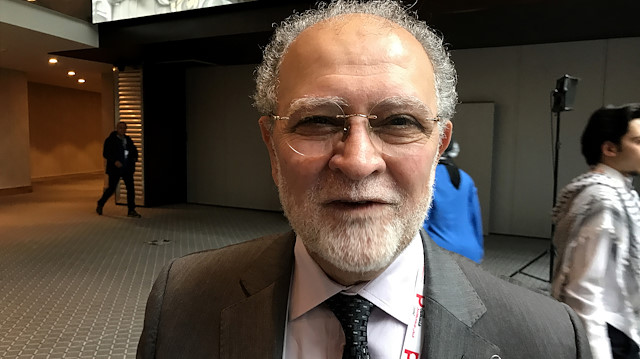

Azzam al-Tamimi, director of the London-based Institute of Islamic Political Thought
Ill-fated journalist had undermined Saudi efforts to portray MBS as ‘reformer’, analyst says
The order to kill Saudi journalist Jamal Khashoggi was given by Saudi Crown Prince Mohamed bin Salman, Azzam al-Tamimi, director of the London-based Institute of Islamic Political Thought, has told Anadolu Agency.
According to the Palestinian researcher, bin Salman issued the order because Khashoggi was undermining Saudi efforts to market the crown prince as a “liberal” and “reformist” to western audiences.
Khashoggi’s frequent contributions to The Washington Post, al-Tamimi said, “had been attracting considerable attention”.
“Intellectuals in the U.S. viewed Jamal as an insider vis-à-vis the Saudi administration,” he explained. “And his criticisms were counteracting the propaganda on which the Saudi lobby was spending millions of dollars.”
“Now, for the first time, the international media is focusing on a single issue,” al-Tamimi continued. “Not only because a prominent journalist was brutally killed, but because it took place inside a diplomatic mission.”
According to al-Tamimi, the Turkish government has handled the issue in a very competent manner.
“They [the Turks] shared the information gradually, thus keeping the issue on the [international] agenda,” he said.
What’s more, al-Tamimi said, Khashoggi had not concealed his position regarding the 2011 Arab Spring uprisings, which Saudi Arabia had actively worked to subvert.
“He therefore drew the ire of the Saudi royal court, which ultimately led to his demise,” he said.
"I believe the Saudis hatched the plan, but it failed, after which they tried to blame Ankara for Khashoggi’s disappearance,” al-Tamimi asserted. “But God ruined their plans.”
He added: “Without a doubt, bin Salman ordered the murder.”
“He [bin Salman] enjoys the support of U.S. President Donald Trump and the White House, and now he’s looking to them to evade responsibility,” he said. “But the murder has become an international incident and this [U.S. support] will not save him.”
Al-Tamimi believes that if the crown prince escapes prosecution, “this will be the beginning of the end of the House of Al Saud”.
But if bin Salman is removed from a position of leadership, he added, “the dynasty may yet survive”.
“He [bin Salman] is the one who declared war on Yemen, imposed a blockade on Qatar and detained [dissident] scholars,” al-Tamimi said.
He also noted the close relationship between Saudi Arabia and the United Arab Emirates (UAE), especially during the bin Salman era.
“There are strong ties between bin Salman and Abu Dhabi Crown Prince Mohamed bin Zayed [Al Nahyan],” he said. “Bin Zayed is largely seen as a spiritual godfather to his Saudi counterpart.”
While some have questioned whether bin Zayed played a role in Khashoggi’s murder, al-Tamimi, for his part, does not believe this to have been the case.
#Jamal Khashoggi




